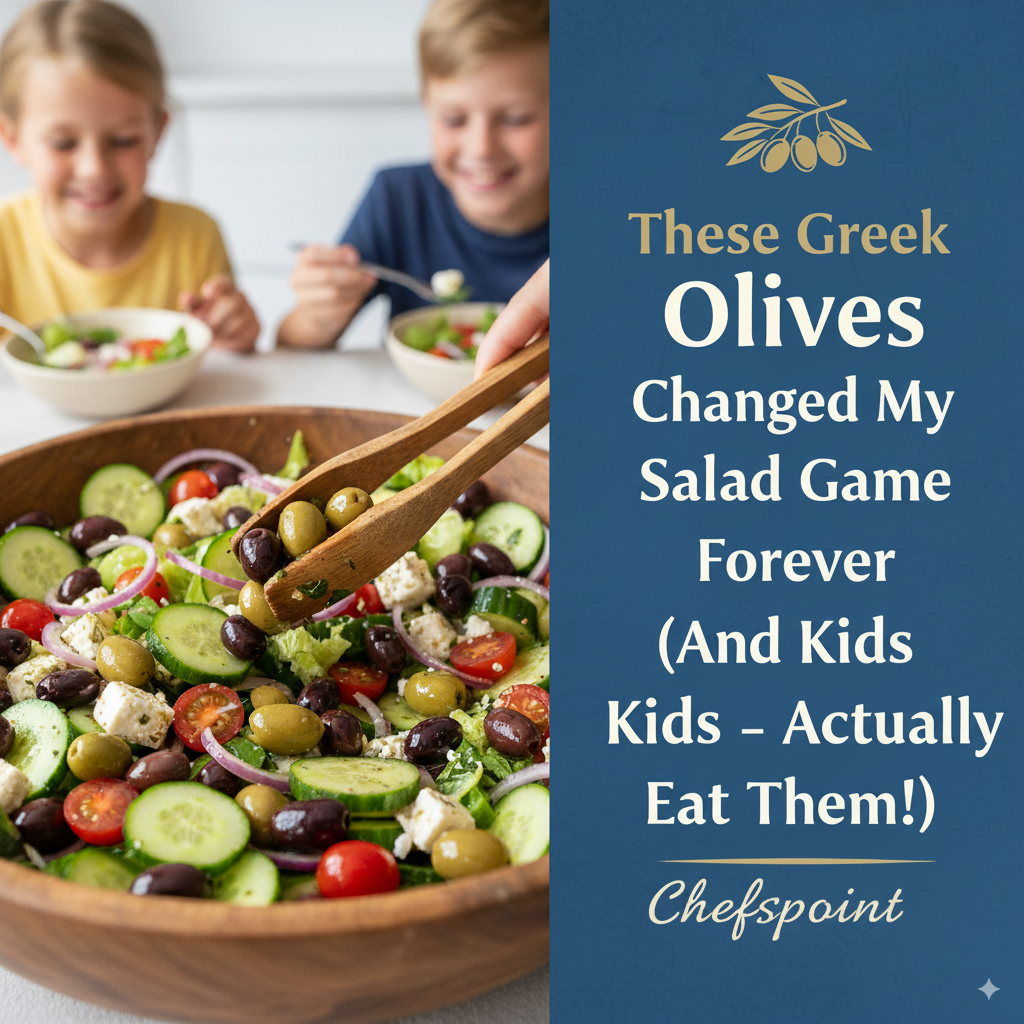

These Greek Olives Changed My Salad Game Forever (And My Kids Actually Eat Them!)
Table of Contents
- Introduction: The Olive That Transformed Our Family Dinners
- What Makes Kalamata Olives So Special?
- My Journey from Olive-Skeptic to Mediterranean Convert
- The Picky Eater Challenge
- The First Taste That Changed Everything
- Why Kalamata Olives Are Different from Regular Black Olives
- Comprehensive Olive Comparison
- The Authentic Greek Difference
- How Kalamata Olives Became My Secret Weapon for Kid-Friendly Meals
- The Psychology of Getting Kids to Try New Foods
- Simple Strategies That Actually Work
- The Health Benefits That Made Me a Mediterranean Diet Convert
- Nutritional Powerhouse Analysis
- Mediterranean Diet Integration
- My Top 5 Game-Changing Kalamata Olive Recipes
- The Ultimate Greek Salad That Won Over My Family
- Mediterranean Pasta That Kids Actually Request
- Quick Olive Tapenade for Busy Weeknights
- Hidden Veggie Pizza with Kalamata Magic
- Energy-Boosting Mediterranean Snack Boxes
- Professional Tips for Selecting and Storing Kalamata Olives
- Quality Indicators and Shopping Guide
- Storage Techniques for Maximum Freshness
- Common Mistakes and How to Avoid Them
- Preparation Pitfalls
- Serving Strategies for Success
- Where to Find Authentic Kalamata Olives in India
- Frequently Asked Questions
- Conclusion: Your Family's Mediterranean Journey Starts Here
Introduction: The Olive That Transformed Our Family Dinners
Six months ago, my 8-year-old son would dramatically gag at the mere sight of any olive on his plate, while my 10-year-old daughter would pick them off her pizza with surgical precision. Family salads were a constant battleground, and I'd given up on serving anything remotely Mediterranean in our house. Then I discovered Kalamata olives during a desperate grocery store experiment, and everything changed.
Today, those same kids fight over who gets the last Greek olives in the salad bowl. My son actually asks me to pack Kalamata olives in his lunch box, and my daughter has started requesting "that yummy Greek salad" for dinner parties. What seemed impossible just months ago has become our family's favorite way to enjoy healthy fats and embrace the Mediterranean diet.
The secret wasn't just finding the right black olives; it was discovering how Kalamata olives transform ordinary meals into something special. From their distinctive almond shape to their rich, complex flavor that even picky eaters can appreciate, these Greek cuisine staples have revolutionized not just our salads, but our entire approach to Mediterranean recipes and antioxidant foods.
What Makes Kalamata Olives So Special?
Kalamata olives originate from the Kalamata region of Greece, where they've been cultivated for over 3,000 years using traditional methods passed down through generations. Unlike mass-produced black olives, these Greek olives are hand-picked at peak ripeness and cured in red wine vinegar and sea salt, creating their signature deep purple color and distinctive tangy-sweet flavor profile.
The unique almond shape and meaty texture of Kalamata olives set them apart from ordinary black olives. Their flesh is firmer, their flavor more complex, and their olive nutrition profile significantly richer than conventional varieties. This makes them perfect for Mediterranean diet enthusiasts and families looking to incorporate more healthy fats and antioxidant foods into their daily meals.
- Protected designation: Authentic Kalamata olives can only come from specific regions in Greece, ensuring quality and authenticity
- Traditional curing: The Red wine vinegar process creates the distinctive tangy flavor that makes Greek cuisine so appealing
- Superior texture: Firm, meaty flesh holds up beautifully in cooking and provides a satisfying bite in Mediterranean recipes
- Rich nutrition: Higher concentrations of healthy fats, vitamin E, and antioxidants compared to regular black olives
My Journey from Olive-Skeptic to Mediterranean Convert
The Picky Eater Challenge
Before discovering Kalamata olives, our family meals were limited by my children's narrow palates and my own frustration with Mediterranean diet attempts. Regular black olives from cans tasted bland and mushy to all of us, reinforcing the kids' belief that olives were "gross grown-up food" with no place at our dinner table.
The breakthrough came during a particularly challenging week when I was determined to add more antioxidant foods to our meals without triggering the usual mealtime battles. I spotted Kalamata olives in the specialty section and decided to try a different approach to introducing Greek cuisine elements to our family routine.
- Previous failures: Regular black olives were consistently rejected due to a bland, mushy texture and a metallic aftertaste
- Health motivation: Wanted to incorporate Mediterranean diet benefits and olive nutrition into family meals
- Strategic timing: Introduced Kalamata olives during a relaxed weekend when kids were more open to trying new foods
- Presentation matters: Served Greek olives alongside familiar foods rather than as standalone items
The First Taste That Changed Everything
The moment my daughter bit into her first Kalamata olive, her expression shifted from skeptical resistance to genuine surprise. Instead of the harsh, salty bite she expected from previous black olives experiences, she discovered a rich, complex flavor that was both familiar and exotic. My son, encouraged by his sister's positive reaction, tentatively tried one and immediately asked for another.
That single successful introduction opened the door to exploring Greek cuisine and Mediterranean recipes as a family. Within weeks, we were experimenting with olive benefits in various dishes, and the kids were genuinely excited about meals that featured these antioxidant foods.
- Flavor revelation: Kalamata olives offered complexity and richness that previous black olives couldn't match
- Texture appeal: Firm, meaty consistency provided satisfying bite that kids actually enjoyed
- Positive reinforcement: Success with Greek olives encouraged willingness to try other Mediterranean diet foods
- Family bonding: Exploring Mediterranean recipes together became a fun weekend activity
Why Kalamata Olives Are Different from Regular Black Olives
Comprehensive Olive Comparison
Understanding the differences between Kalamata olives and regular black olives explains why one variety can transform your family's relationship with Mediterranean diet foods while the other falls flat. The distinction goes far beyond appearance, it's about cultivation methods, curing processes, and the resulting olive nutrition profiles.
Here's a detailed comparison that showcases why Greek olives deliver superior results in Mediterranean recipes and family meals:
| Attribute | Kalamata Olives | Regular Black Olives |
|---|---|---|
| Origin | Kalamata region, Greece | Various global locations |
| Shape | Distinctive almond shape | Round or oval |
| Color | Deep purple-black | Uniform black |
| Curing Process | Red wine vinegar and sea salt | Lye solution and brine |
| Texture | Firm, meaty flesh | Often soft or mushy |
| Flavor Profile | Complex, tangy-sweet, fruity | Mild, sometimes metallic |
| Olive Nutrition | Higher antioxidants and healthy fats | Standard olive nutritional profile |
| Mediterranean Diet Value | Authentic Greek cuisine component | Generic black olives substitute |
The Authentic Greek Difference
The protected designation of origin for Kalamata olives ensures that every olive bearing this name meets strict quality standards developed over centuries of Greek cuisine tradition. This isn't just marketing, it's a guarantee that you're getting authentic Mediterranean diet ingredients with proven olive benefits.
The traditional curing process using red wine vinegar creates the distinctive flavor that makes Kalamata olives so appealing to both adults and children. This natural fermentation develops complex flavors while preserving the antioxidant foods properties that make Greek olives such valuable additions to healthy family meals.
- Quality assurance: Protected designation ensures consistent Kalamata olives quality and authenticity
- Traditional methods: Centuries-old curing techniques preserve olive nutrition while developing superior flavor
- Natural processing: Red wine vinegar curing avoids harsh chemicals used in mass-produced black olives
- Sustainable practices: Traditional Greek farming methods support environmental health and quality
How Kalamata Olives Became My Secret Weapon for Kid-Friendly Meals
The Psychology of Getting Kids to Try New Foods
The success of Kalamata olives with my previously olive-resistant children taught me valuable lessons about introducing Mediterranean diet foods to families. The key wasn't forcing them to eat Greek olives, but rather creating positive associations and removing the pressure that often accompanies trying antioxidant foods.
I discovered that the superior flavor and texture of Kalamata olives made them naturally more appealing than regular black olives. Their complex taste profile offers something interesting for developing palates, while their firm texture provides the satisfying bite that kids often prefer in Mediterranean recipes.
- Quality matters: Superior Kalamata olives flavor made the difference between acceptance and rejection
- Positive presentation: Introducing Greek olives alongside favorite foods reduced resistance
- No pressure approach: Allowing kids to explore Mediterranean diet foods at their own pace increased success
- Flavor complexity: Rich taste of Greek cuisine ingredients engaged rather than overwhelmed young palates
Simple Strategies That Actually Work
The transformation didn't happen overnight, but these practical approaches consistently helped my children develop appreciation for Kalamata olives and other Mediterranean recipes. The key was understanding that children often reject foods based on texture and appearance before they even taste them.
Starting with familiar combinations and gradually introducing more adventurous Greek cuisine elements allowed the kids to build confidence with antioxidant foods while discovering new favorites. The olive benefits were a bonus, the real victory was watching them genuinely enjoy healthy fats and Mediterranean diet staples.
- Familiar pairings: Started with Kalamata olives on pizza and in pasta dishes kids already enjoyed
- Visual appeal: Presented Greek olives in colorful salads and attractive arrangements
- Interactive preparation: Let kids help prepare Mediterranean recipes to build investment and curiosity
- Consistent availability: Kept antioxidant foods visible and accessible for spontaneous snacking
The Health Benefits That Made Me a Mediterranean Diet Convert
Nutritional Powerhouse Analysis
The olive nutrition profile of Kalamata olives convinced me that this wasn't just about getting kids to eat vegetables; it was about introducing genuinely beneficial healthy fats and antioxidant foods that support long-term health. Research consistently shows that Mediterranean diet patterns, including regular consumption of quality Greek olives, correlate with reduced inflammation and improved cardiovascular health.
Kalamata olives provide an exceptional concentration of monounsaturated fats, particularly oleic acid, which supports heart health and helps the body absorb fat-soluble vitamins. The olive benefits extend beyond basic nutrition to include powerful antioxidants like hydroxytyrosol and oleuropein that protect against cellular damage.
- Heart-healthy fats: Kalamata olives provide oleic acid that supports cardiovascular health and reduces inflammation
- Antioxidant powerhouse: Higher concentrations of protective compounds compared to regular black olives
- Vitamin E source: Essential for immune function and skin health, particularly important for growing children
- Mineral content: Significant iron, copper, and calcium that support bone health and energy production
Mediterranean Diet Integration
Incorporating Kalamata olives into our family meals became the gateway to adopting broader Mediterranean diet principles. The Greek cuisine influence encouraged us to experiment with more vegetables, whole grains, and healthy fats, creating a sustainable approach to family nutrition that actually tasted good.
The research supporting Mediterranean recipes and their long-term health benefits made the dietary shift feel like a smart investment rather than a sacrifice. My children's positive response to antioxidant foods and Greek olives proved that healthy eating doesn't have to be a struggle.
- Gateway food: Kalamata olives introduced family to broader Mediterranean diet principles
- Sustainable change: Delicious Greek cuisine elements made healthy eating feel natural rather than forced
- Research-backed benefits: Scientific evidence supporting olive benefits and Mediterranean recipes provided confidence
- Family-wide impact: Everyone benefited from increased antioxidant foods and healthy fats consumption
My Top 5 Game-Changing Kalamata Olive Recipes
The Ultimate Greek Salad That Won Over My Family
This Greek cuisine staple became our family's most requested salad within weeks of discovering authentic Kalamata olives. The combination of fresh vegetables, creamy feta, and the distinctive flavor of Greek olives creates a satisfying meal that even picky eaters embrace as part of their Mediterranean diet journey.
The secret is using the highest quality ingredients, especially premium Kalamata olives that provide the complex flavor foundation. When kids taste the difference between authentic Greek olives and regular black olives, they understand why this Mediterranean recipe has been cherished for generations.
- Premium ingredients: Start with authentic Kalamata olives for the distinctive Greek cuisine flavor base
- Perfect ratios: Balance vegetables, cheese, and antioxidant foods for appealing presentation and taste
- Fresh preparation: Assemble Mediterranean recipes just before serving to maintain crisp textures
- Kid involvement: Let children help prepare vegetables and arrange Greek olives for ownership and interest
Family Greek Salad Recipe:
- 2 large tomatoes, cut into wedges
- 1 cucumber, sliced thick
- 1 red onion, thinly sliced
- 150g authentic Kalamata olives
- 200g feta cheese, cubed
- Extra virgin olive oil and red wine vinegar
- Oregano and sea salt
Mediterranean Pasta That Kids Actually Request
This Mediterranean recipe transforms ordinary weeknight dinner into something special using Kalamata olives as the flavor centerpiece. The Greek olives provide richness and complexity that makes simple ingredients taste gourmet, while the olive nutrition adds healthy fats and antioxidant foods to a kid-friendly base.
The key is balancing the distinctive Greek cuisine flavors with familiar pasta shapes and mild seasonings that don't overwhelm young palates. The olive benefits become secondary to the delicious taste that has my children requesting this Mediterranean diet meal regularly.
- Familiar base: Start with pasta shapes kids love, then add Kalamata olives and Mediterranean recipes elements
- Balanced flavors: Use Greek olives to enhance rather than dominate the overall taste profile
- Visual appeal: Colorful vegetables and antioxidant foods create attractive presentation
- Quick preparation: Simple Mediterranean diet meals that fit busy family schedules
Quick Olive Tapenade for Busy Weeknights
This Greek cuisine spread transforms Kalamata olives into a versatile condiment that elevates everything from crackers to grilled chicken. The olive benefits concentrate into a flavorful paste that provides healthy fats and antioxidant foods in a format that appeals to both adults and adventurous children.
Making tapenade with quality Greek olives creates a pantry staple that brings Mediterranean diet flavors to quick meals and snacks. The olive nutrition remains intact while the concentrated flavor makes a little go a long way in Mediterranean recipes.
- Concentrated nutrition: Kalamata olives tapenade provides healthy fats and antioxidant foods in small servings
- Versatile application: Use with crackers, vegetables, proteins, or as Mediterranean recipes ingredient
- Make-ahead convenience: Prepare Greek cuisine condiments in advance for busy weeknight meals
- Kid-friendly introduction: Mild tapenade flavor introduces children to Greek olives gradually
Hidden Veggie Pizza with Kalamata Magic
Pizza became our vehicle for introducing Mediterranean diet concepts and Greek cuisine flavors to skeptical family members. The Kalamata olives provide such appealing taste that they mask the presence of additional vegetables while contributing olive nutrition and healthy fats to a beloved comfort food.
This Mediterranean recipe proves that antioxidant foods and Greek olives can enhance rather than compromise familiar favorites. The kids focus on the delicious pizza experience while unknowingly embracing olive benefits and broader Mediterranean diet principles.
- Familiar format: Pizza provides non-threatening way to introduce Kalamata olives and vegetables
- Flavor masking: Greek olives help disguise additional antioxidant foods and vegetables
- Interactive preparation: Kids enjoy adding Greek cuisine toppings and Mediterranean recipes elements
- Nutritional upgrade: Olive nutrition and healthy fats improve standard pizza nutritional profile
Energy-Boosting Mediterranean Snack Boxes
These portable Mediterranean diet combinations became essential for school lunches and after-activity snacks. Kalamata olives anchor the snack boxes with healthy fats and satisfying flavor, while complementary antioxidant foods create balanced, appealing presentations that kids actually eat.
The olive benefits provide sustained energy that processed snacks can't match, while the variety of Greek cuisine elements keeps children interested and engaged with their food. These Mediterranean recipes in miniature form make healthy eating convenient and appealing.
- Sustained energy: Kalamata olives and healthy fats provide longer-lasting fuel than processed snacks
- Appealing presentation: Colorful Mediterranean diet combinations attract children's interest
- Portable convenience: Greek olives and complementary antioxidant foods travel well
- Educational opportunity: Snack boxes introduce children to diverse Greek cuisine flavors and textures
Professional Tips for Selecting and Storing Kalamata Olives
Quality Indicators and Shopping Guide
Finding authentic Kalamata olives requires knowing what to look for when shopping. The Greek cuisine market includes many imitations that lack the distinctive flavor and olive nutrition of genuine Greek olives. Understanding quality indicators helps ensure you're getting the olive benefits and Mediterranean diet value that make the investment worthwhile.
Authentic Kalamata olives should display the distinctive almond shape, deep purple-black color, and firm texture that sets them apart from regular black olives. The antioxidant foods properties and healthy fats concentration depend on proper cultivation and curing methods that quality producers maintain.
- Shape recognition: Authentic Kalamata olives have distinctive almond shape, not round like regular black olives
- Color indicators: Deep purple-black color, not uniform black of mass-produced varieties
- Texture testing: Greek olives should feel firm and meaty, never mushy or overly soft
- Origin verification: Look for protected designation and Greek cuisine authenticity markers
Storage Techniques for Maximum Freshness
Proper storage preserves the olive benefits and complex flavors that make Kalamata olives such valuable additions to Mediterranean recipes. The olive nutrition and antioxidant foods properties remain stable when stored correctly, while improper handling can compromise both taste and health benefits.
Understanding storage requirements helps maximize your investment in quality Greek olives while ensuring consistent Mediterranean diet results. The healthy fats and other beneficial compounds remain intact when storage conditions support rather than degrade the natural Greek cuisine qualities.
- Refrigeration requirements: Keep Kalamata olives submerged in their brine and refrigerated after opening
- Container selection: Use glass or food-grade plastic containers that don't absorb Greek olives flavors
- Brine maintenance: Maintain liquid levels to prevent antioxidant foods degradation and texture changes
- Consumption timeline: Use opened Mediterranean recipes ingredients within reasonable timeframes for best quality
Common Mistakes and How to Avoid Them
Preparation Pitfalls
Even with quality Kalamata olives, certain preparation mistakes can compromise the Mediterranean diet experience for families. Understanding these common errors helps ensure that Greek cuisine elements enhance rather than detract from family meals, particularly when introducing antioxidant foods to reluctant children.
The most frequent mistake involves overwhelming inexperienced palates with too many Mediterranean recipes elements at once. Success with Greek olives requires gradual introduction that builds appreciation rather than resistance to olive benefits and healthy fats.
- Overwhelming portions: Start with small amounts of Kalamata olives to build tolerance and appreciation
- Poor combinations: Avoid pairing Greek cuisine elements with conflicting flavors that confuse young palates
- Temperature mistakes: Serve Mediterranean recipes at appropriate temperatures for best Greek olives flavor
- Texture issues: Ensure antioxidant foods maintain proper texture through appropriate handling and storage
Serving Strategies for Success
Successful introduction of Kalamata olives and Mediterranean diet concepts requires strategic presentation that maximizes acceptance while preserving olive nutrition benefits. The Greek cuisine experience should feel natural and appealing rather than forced or medicinal.
Creating positive associations with Greek olives involves understanding family preferences and building on familiar flavors while gradually expanding Mediterranean recipes repertoire. The olive benefits become secondary to the enjoyable eating experience that encourages continued exploration.
- Gradual introduction: Build Kalamata olives appreciation slowly rather than expecting immediate acceptance
- Positive associations: Pair Greek cuisine elements with already-loved foods and Mediterranean recipes
- Consistent availability: Keep antioxidant foods and healthy fats sources visible and accessible
- Family involvement: Include everyone in Mediterranean diet planning and Greek olives selection process
Where to Find Authentic Kalamata Olives in India
Finding genuine Kalamata olives in India has become easier with specialty retailers like ChefsPoint, which offers authentic Greek cuisine ingredients with guaranteed quality and freshness. Their Kalamata Olives by Olymp (360g) provides the distinctive flavor and olive nutrition that make Mediterranean diet integration successful for Indian families.
ChefsPoint ensures that their Greek olives maintain the authentic taste and antioxidant foods properties essential for genuine Mediterranean recipes. Their commitment to quality means families can trust they're getting the olive benefits and healthy fats that make Kalamata olives such valuable additions to healthy eating plans.
Shopping at ChefsPoint.in provides access to premium Greek cuisine ingredients with the convenience of home delivery across India. Their curated selection of Mediterranean diet staples supports families looking to incorporate more antioxidant foods and healthy fats into their daily meals.
- Authentic sourcing: Premium Kalamata olives imported directly from Greece with quality guarantees
- Proper handling: Greek olives maintained at optimal conditions to preserve olive nutrition and flavor
- Convenient delivery: Online ordering brings Mediterranean recipes ingredients directly to your kitchen
- Expert curation: Carefully selected antioxidant foods that meet family cooking and nutrition standards
Conclusion: Your Family's Mediterranean Journey Starts Here
The transformation in our family's relationship with Kalamata olives and Mediterranean diet principles has been nothing short of remarkable. What started as a desperate attempt to add more antioxidant foods to our meals became a joyful exploration of Greek cuisine that brought us together around the dinner table in ways I never expected.
The investment in authentic Kalamata olives from trusted sources like ChefsPoint pays dividends in both nutrition and family harmony. Every meal featuring these Greek olives provides valuable olive benefits, healthy fats, and olive nutrition while creating positive associations with Mediterranean recipes that will last a lifetime.
Share views on These Greek Olives Changed My Salad Game Forever (And My Kids Actually Eat Them!)
Please keep your views respectful and not include any anchors, promotional content or obscene words in them. Such comments will be definitely removed and your IP be blocked for future purpose.
FAQ on These Greek Olives Changed My Salad Game Forever (And My Kids Actually Eat Them!)
How do I know if I'm buying authentic Kalamata olives?
Look for protected designation markers, distinctive almond shape, deep purple-black color, and Greek origin labeling. Authentic Kalamata olives from reputable sources like ChefsPoint guarantee quality and genuine Greek cuisine experience.
Can I use Kalamata olives in Indian fusion recipes?
Absolutely! Kalamata olives work beautifully in Mediterranean diet fusion dishes, adding healthy fats and antioxidant foods to Indian-inspired salads, rice dishes, and appetizers while introducing Greek cuisine elements to familiar flavors.
What's the best way to serve Kalamata olives to children?
Present Kalamata olives in colorful, appealing arrangements with other Mediterranean recipes elements kids enjoy. Start with small portions and focus on fun presentation rather than olive nutrition benefits to encourage antioxidant foods acceptance.
Are there any dietary restrictions for Kalamata olives?
Kalamata olives are naturally gluten-free, vegan, and suitable for most Mediterranean diet approaches. However, they're high in sodium due to the curing process, so people on low-sodium diets should consume Greek olives in moderation.
Can Kalamata olives be part of a weight management diet?
Yes, Kalamata olives provide healthy fats that support satiety and Mediterranean diet principles associated with healthy weight management. The olive benefits include heart-healthy monounsaturated fats that help control appetite and support metabolism.
How should I store Kalamata olives?
Keep Kalamata olives refrigerated and submerged in their original brine in airtight containers. Proper storage maintains olive nutrition and prevents Greek olives from losing their characteristic texture and antioxidant foods properties.
What dishes work best for introducing Greek olives to families?
Mediterranean recipes like Greek salad, olive-topped pizza, and simple pasta dishes provide familiar contexts for Kalamata olives. These Greek cuisine applications let families appreciate olive benefits without overwhelming new flavors.
How can I get my kids to eat Kalamata olives?
Start by introducing Kalamata olives alongside familiar foods like pizza or pasta, allow kids to help with Mediterranean recipes preparation, and avoid pressure while keeping Greek olives visible and accessible for gradual acceptance of antioxidant foods.
Are Kalamata olives healthier than other olive varieties?
Kalamata olives offer superior olive nutrition with higher concentrations of antioxidant foods compounds, healthy fats, and vitamin E compared to mass-produced varieties. Their traditional curing process preserves more olive benefits than commercial black olives processing.
What makes Kalamata olives different from regular black olives?
Kalamata olives are authentic Greek olives with distinctive almond shape, deep purple color, and complex flavor from red wine vinegar curing. Regular black olives are typically round, uniformly black, and have milder taste due to different processing methods and origins.
Blog Categories
Blog Tags
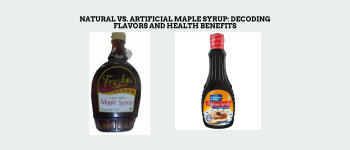 12th Nov 2024
12th Nov 2024
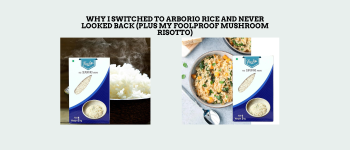 29th Aug 2025
29th Aug 2025
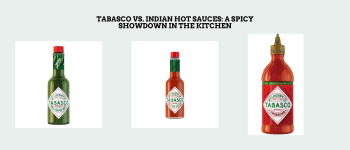 11th Nov 2024
11th Nov 2024
 5th Oct 2025
5th Oct 2025
 10th Nov 2025
10th Nov 2025
 4th Oct 2025
4th Oct 2025
 10th Sep 2025
10th Sep 2025
 5th Oct 2025
5th Oct 2025
 18th Dec 2024
18th Dec 2024
 10th Sep 2025
10th Sep 2025
 15th Nov 2024
15th Nov 2024
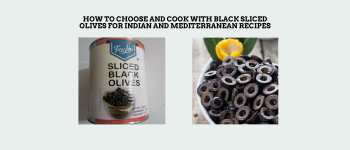 2nd Aug 2025
2nd Aug 2025
 4th Aug 2025
4th Aug 2025
 26th Nov 2024
26th Nov 2024
